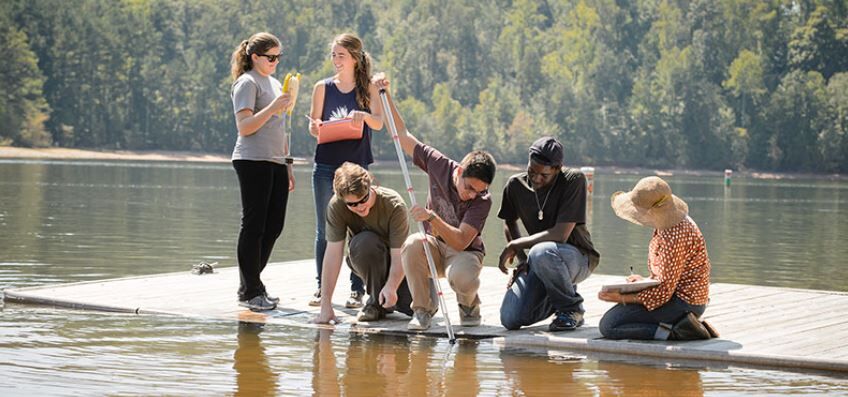“Biosystems engineers can do anything from working in jobs typically held by civil engineers to working in jobs held by bio or chemical engineers,” said junior biosystems engineering major Mary Atieh. “Our two emphases of either ecological and bioprocessing really allow our major to have breadth in the job market, so it is a very marketable degree that can be used for multiple purposes.”
Although most incoming students don’t hear about biosystems engineering during their first year under the major of general engineering, it is mostly applicable to helping environmental concerns, and it has a wide range of scientific uses. “Any student that has a passion for sustainability and wants to help solve our world’s environmental problems should consider biosystems engineering,” responded Dr. Caye Drapcho, an associate professor within the biosystems engineering field at Clemson. “It is a tough major because it requires knowledge of the engineering sciences, along with the life sciences of biology, microbiology and ecology, but it is worth the effort and quite rewarding.”
With a similar name to bioengineering and a close description to environmental engineering, why is this field only a fraction of the size related to the other engineering fields offered at Clemson? “One reason is because many of the ecological designs that we accomplish are meant to function in balance with the environment, so we don’t get any ‘advertising’ effect from the designs,” explained Drapcho. “If there is a severely eroded stream, and a biosystems engineer leads a stream restoration project to restore the stream to its natural state, then it will look like a natural stream without anyone knowing it was the result of engineering design. The more successful we are with the design, the more you don’t know that it is a design completed by a biosystems engineer.”
From a student’s perspective, biosystems engineering was not emphasized as a specific field of study.
“Before you can switch into engineering as an underclassmen, you have to talk to an advisor,” said Atieh “I asked them what the difference between biosystems and environmental engineering was, and there wasn’t a good answer. I think when people ask about it, they’re not getting a good idea of what it is and just assume it’s like environmental [engineering], but harder.”
Despite having a smaller major size without advertising to most incoming students, the biosystems field fosters a unique environment where students can collaborate and learn about their peers in smaller classes.
“I would advise new biosystems [engineering] students, or any students, to get to know their fellow faculty members and classmates. We are currently a smaller major, so all of us have the majority of our classes together every day. It’s interesting to talk to biosystems engineering students and hear what careers they plan to pursue because we have many different fields available to us after graduation,” said junior Abby Nicholson, a fellow biosystems engineering major.
Despite being a smaller engineering program, biosystems engineering allows students to explore a variety of environmental topics and develop connections with one another, although the major is looking to expand its size and reach more undergraduate students.
To learn more about biosystems engineering, visit http://www.clemson.edu/degrees/biosystems-engineering for more information.









